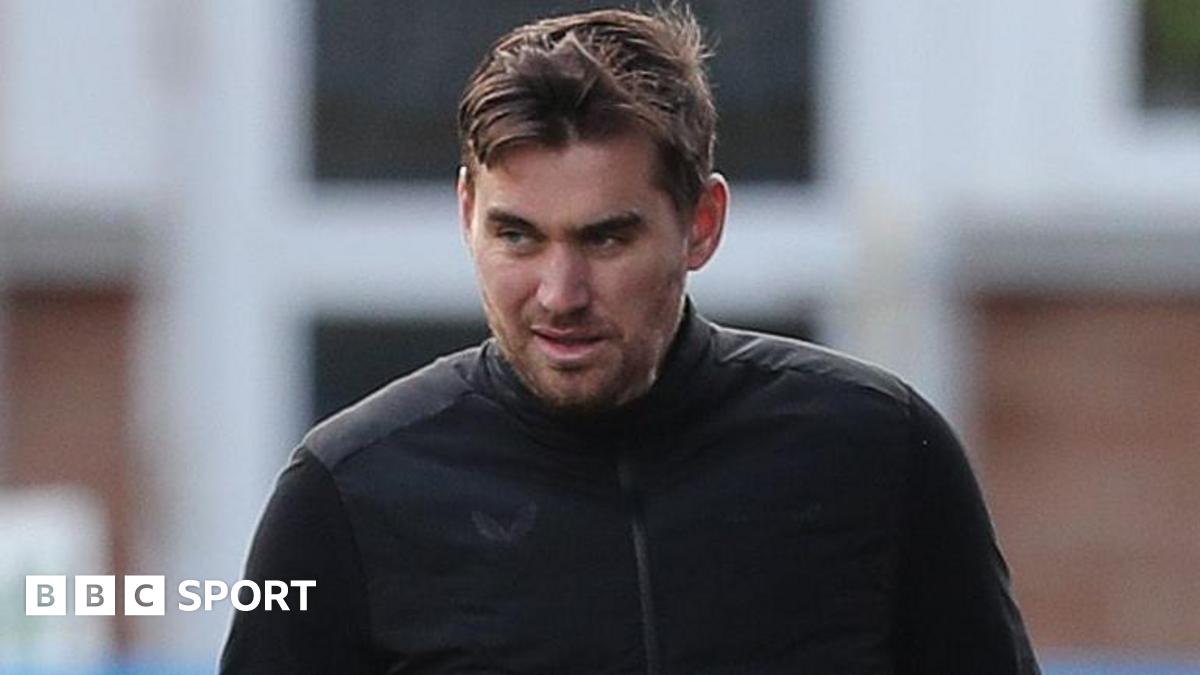Red Bull's removal of Christian Horner may appear sudden, given only three days have passed since he oversaw Max Verstappen's fifth-placed finish at the British Grand Prix.
But this was a decision at least 18 months in the making.
Horner, in charge for two decades, will go down in F1 history as one of the sport's greatest team bosses.
Yet his long-standing grip on Red Bull Racing had been slipping for some time.
Horner's future was first called into question when it emerged in February last year that a female employee had accused him of sexual harassment and coercive, controlling behaviour. He has twice been cleared of the allegations by internal Red Bull investigations.
There is a whole lot more to Horner's demise than that episode, the ultimate conclusion of which remains unknown. But it added extra momentum to the mix that led to Red Bull's decision.
Looking at the state of Red Bull right now, it's almost hard to believe that they are the reigning world champions.
Verstappen - regarded by almost everyone in F1 as the best driver in the world - is third in the championship, 69 points off the leader, McLaren's Oscar Piastri, at the halfway point of the season.
The Dutchman has won only two races this season. He has won just four out of 24 races in the past year. Red Bull are fourth in the constructors' championship - or to put it another way, last of the top four teams - with no obvious way of improving on that position.
At the same time, Verstappen's future is in doubt. Horner has been emphasising that the driver has a contract until 2028. But that has not stopped Mercedes courting him.
If Verstappen left, with Red Bull in their current plight in terms of performance, it would be potential armageddon for the team. He has scored 165 points this season. Their second driver has scored just 10.
So what do we know about what happened and the events that led to his departure? Well, while Red Bull were keeping their own counsel on Wednesday, plenty is known about the machinations behind the scenes, with power struggles, disagreements and concern over both car and driver decisions.
Power struggles 'rife for close to three years'
The hatches have been bolted down at Red Bull, who are saying nothing other than their public statement that Horner has been "released from his operational duties with effect from today".
Even the few internal sources who might normally brief reliably are refusing to talk off the record.
So it is impossible to know for sure what was the straw that broke the camel's back to lead to this decision being taken now.
But although the decision might be a shock, with a bit of reflection, perhaps it's not as much of a surprise. Let's take a step back and ask: How did things get to this point?
To find the beginnings of an answer to that, one has to go back to October 2022, perhaps even earlier, and the death of Red Bull co-owner Dietrich Mateschitz.
Horner saw an opportunity to enhance his power. He started manoeuvring, and the first person in the way was Helmut Marko, Red Bull's long-time motorsport adviser and a close friend of Mateschitz.
A power struggle ensued. For some time, there was talk that Horner was trying to get rid of Marko, and the situation was not resolved until March 2024, when Verstappen stepped in and backed the Austrian. He made it clear that if Marko left, so would he.
Verstappen's father, Jos, also made his unhappiness known. In the wake of the allegations against Horner, Jos Verstappen said the team would fall apart if Horner remained in place.
Meanwhile, Horner was managing internal tensions within the design department between chief technical officer Adrian Newey and technical director Pierre Wache.
Through 2023, Horner was briefing that Newey - regarded as the greatest designer in F1 history - was no longer as important as he was. Newey effectively worked only three days a week, Horner would say, bigging up the roles of Wache and the technical leadership team around him, especially head of aerodynamics Enrico Balbo.
When the female employee made her allegations about Horner, Newey was unimpressed by what he heard. That, along with the feeling that others were claiming credit for work he believed was his own, led to Newey resigning in April last year.
He was immediately removed from any involvement with the F1 team, until his formal departure from the company later in the year. Newey started work for Aston Martin in March.
At the time Newey left, Verstappen had won two consecutive world championships - the second of which in 2023 was the most dominant in history.
Verstappen started the 2024 season with four wins in the first five races. Following Newey's departure, he won three of the next four. Then two of the following 13.
That performance level has continued into 2025. At the halfway point of the season, Verstappen has won just twice in 12 races.
Was Red Bull's loss of competitiveness a direct consequence of Newey's departure? No-one can be sure, but it has to have had an effect. A team does not lose someone of Newey's wisdom, experience and wide-ranging expertise without some consequences.
In July, long-time sporting director Jonathan Wheatley also resigned. He is now team principal of Sauber/Audi. Horner, much to Wheatley and Audi's annoyance, announced the move for them.
In September, head of strategy Will Courtenay followed suit. He will join McLaren as sporting director as soon as a contractual impasse can be resolved.
Red Bull's second car a big problem
Meanwhile, Red Bull have been having a second car problem.
While Verstappen won a record 19 of 22 races in 2023, his team-mate Sergio Perez took just two victories - in the first four races. After that, his form slumped alarmingly.
Kept on for 2024, Perez did not win again. And although he finished second to Verstappen three times in four races while they were dominating at the start of last season, his form had already started to decline again - following the trend of the previous season - by May.
And yet at that point, around the time of the Monaco Grand Prix, Horner signed Perez to a new two-year contract, to take him to the end of 2026.
The decision seemed baffling at the time. Not only was Perez not performing, but Red Bull held all the cards.
Even if giving Perez a new contract beyond the end of 2024 was a good idea - and many thought it was not - they had no need to sign the Mexican for two more years.
Fast forward to December 2024, and Perez's results had been so bad for the remainder of the season that Red Bull felt they had no option but to drop him. Sources say the decision cost them a pay-off in the region of 18m euros (£15.5m).
That might be chicken feed for a company of the size of Red Bull. But it's still an obscenely large amount of money wasted, because of a managerial miscalculation.
To replace Perez, Horner chose Liam Lawson, who at that point had done just 11 grands prix spread over two seasons for Red Bull's second team.
The decision was calamitous. The New Zealander floundered, and was replaced by Yuki Tsunoda after just two races.
The Japanese was the more obvious choice of the two - he had done four seasons, and been faster than Lawson when they were team-mates.
But it was also equally obvious to anyone with any real insight into F1 drivers' abilities that Tsunoda was not someone capable of getting close to Verstappen's level of performance in a car that by now was known to be extraordinarily difficult to drive.
No-one knows how a driver of the level of, for example, George Russell or Charles Leclerc, would do in a Red Bull. But no-one has had a chance to find out, because Red Bull - for which, read Horner - have refused for years to sign one.
And it's the lack of performance from the second driver that has left Red Bull floundering in the constructors' championship - which determines the end-of-year prize money.
Lower-order concerns in the mix? Earlier this year, Horner aligned himself with a push from FIA president Mohammed Ben Sulayem to bring V10 naturally aspirated engines back to F1.
Rivals believed Horner was doing it out of concerns that the engine Red Bull were designing for next year in their new in-hour facility will be uncompetitive compared to Mercedes. He may even have been doing it for what he perceived to be 'the good of the sport'. No-one knows for sure.
But strategically it was unwise. Red Bull's new engine partner Ford entered F1 because of the new 2026 rules, which double down on hybrid. So it was hardly likely that Ford - already uncomfortable about the allegations surrounding Horner - would approve of this stance.
Adding to the miscalculation, it was obvious the V10 plan had no legs - there was too much opposition from Mercedes, Honda and Audi, who together were always going to be able to block it. So why stick your neck out?
Horner's closeness to Ben Sulayem on other matters - such as whispering in his ear to take action on the basis of various wild theories to explain McLaren's dominance - was also rubbing people up the wrong way.
Horner or Verstappen? Red Bull 'ran out of reasons to keep Horner'
When the sexual harassment allegations broke, Horner was saved by the Thai main shareholder Chalerm Yoovidhya, who backed him and kept him in his role.
But within a year, Horner had been told that he now reported directly to Oliver Mintzlaff, Red Bull's chief executive officer of corporate projects and investments. He is the man whose quote was on Wednesday's statement announcing Horner's exit.
The big rumour doing the rounds within F1 on Wednesday was that Red Bull had been given some kind of ultimatum from the Verstappen camp - either Horner went or Max would.
At the moment, it is impossible to know whether that's true. Red Bull have not given a reason publicly. They may never do.
But what can be said is that Verstappen has repeatedly said that he wants to work in a calm, relaxed environment. And Red Bull has been anything but that for at least the past 18 months, and probably longer.
In the end, it probably comes down to this. Results were on the slide. Senior staff, integral to Red Bull's success, had left. A series of questionable decisions had been made. A major reputational threat was still hovering around. And there were questions over their star asset.
In that situation, the future of any CEO of any company would be looking rocky. In the end, it looks like Red Bull just ran out of reasons to keep Horner.
.png)
 5 months ago
19
5 months ago
19








 English (US) ·
English (US) ·